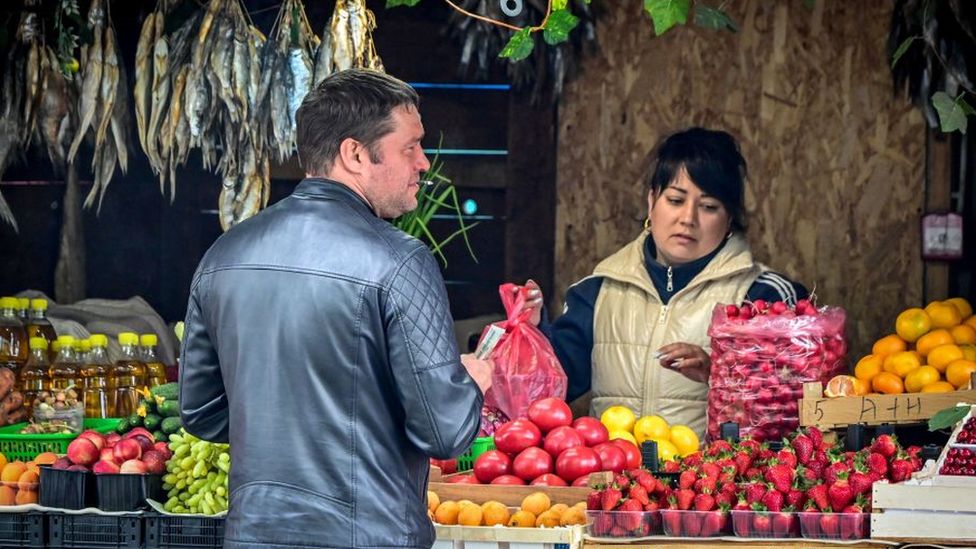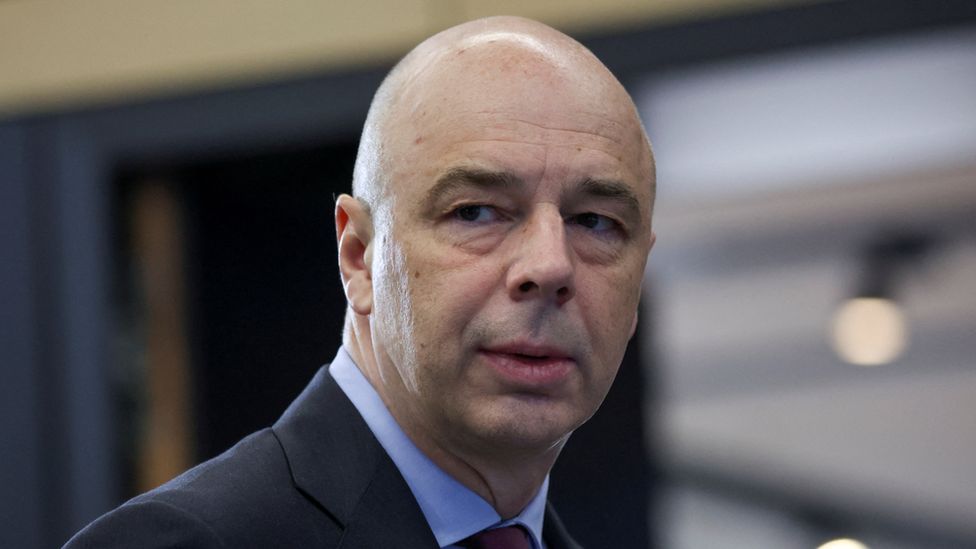Russia is believed to have defaulted on its debt for the first time since 1998 after missing a key deadline.
Russia has the money to make a $100m payment, which was due on Sunday, but sanctions made it impossible to get the sum to international creditors.
The country had been determined to avoid the default, which is a major blow to the nation’s prestige.
Kremlin spokesperson Dmitry Peskov, said “statements of a default were absolutely unjustified”.
He added that an intermediary bank had withheld the money and that the reserves were blocked “unlawfully”.
The White House said that Russia had defaulted on paying yields on its international bonds, crediting sanctions for effectively cutting Russia off from the global financial system.
Russia’s finance minister called the situation “a farce” and said the situation is not expected to have short-term impact.
This is because Russia does not need to raise money internationally as it is reaping revenue from high-priced commodities such as oil, according to Chris Weafer, chief executive at Moscow-based consultancy Macro Advisory.
But he said it would create a “legacy” problem if the situation with Ukraine and international sanctions improves.
“This is the sort of action that will hang over the economy and make recovery much more difficult when we get to that stage,” he said.
The $100m interest payment was due on 27 May. Russia says the money was sent to Euroclear, a bank which would then distribute the payment to investors.
But that payment has been stuck there, according to Bloomberg News, and creditors have not received it.
Meanwhile, some Taiwanese holders of Russian bonds denominated in euros have not received interest payments, according to the Reuters news agency, which cited two sources.
The money had not arrived within 30 days of the due date, that is, Sunday evening, and so is considered a default.
Euroclear would not say if the payment had been blocked, but said it adhered to all sanctions, introduced following Russia’s invasion of Ukraine.
Russia disputed that it had defaulted on the debt. Kremlin spokesman Dmitry Peskov said it had made the payments due in May, and the fact that it was blocked by Euroclear because of sanctions was “not our problem.”
Russia finance minister Anton Siluanov admitted foreign investors would “not be able to receive” the payments, according to the RIA Novosti news wire.
Because Russia wants to pay and has plenty of money to do it, he denied that this amounts to a genuine default, which usually occur when governments refuse to pay, or their economies are so weak that they cannot find the money.
“Everyone in the know understands that this is not a default at all. This whole situation looks like a farce.”
Defaulting nations usually find it impossible to borrow any more money, but Russia is already in effect barred from borrowing in Western markets by sanctions.
Also, Russia is reportedly earning about $1bn a day from fossil fuel exports, and its finance minister Anton Siluanov said in April the country had no plans to borrow more.
Repayment trigger
The default will trigger repayments on a large chunk of Russia’s debt, according to Mr Weafer.
About $40bn of Russia’s debts are denominated in dollars or euros, with around half held outside the country.
“Some parts of that debt will now become automatically due because there will be early repayment clauses in all debt instruments so if you default on one it usually triggers the immediate demand for payment on the other debts, so Russia could certainly face immediate debt repayment of about $20bn at this stage,” he told the BBC’s Today programme.
Russia’s last debt default of any kind was in 1998 as the country was rocked by the rouble crisis during the chaotic end of Boris Yeltsin’s regime. At the time Moscow failed to keep up payments on its domestic bonds and defaulted on some overseas debt.
Russia has seemed on an inevitable path to default since sanctions were first imposed by the US and European Union following the invasion of Ukraine.
These restricted the country’s access to the international banking networks which would process payments from Russia to investors around the world.
The Russian government has said it wants to make all of its payments on time, and up until now it had succeeded.
Default seemed inevitable when the US Treasury decided not to renew the special exemption in sanctions rules allowing investors to receive interest payments from Russia, which expired on 25 May.
The Kremlin now appears to have accepted this inevitability too, decreeing on 23 June stating that all future debt payments would be made in roubles through a Russian bank, the National Settlements Depository, even when contracts state they should be in dollars or other international currencies.
Meanwhile, Mr Weafer, who is based in Moscow, said that life was more or less operating as normal despite sanctions and Western companies withdrawing from Russia.
“If you’re in Moscow right now frankly, if you weren’t reading the newspapers, you’d see there’s been a price increase but otherwise life is as it was before February 24.
“In March and April there was a lot of concern that products would disappear, that factories would not be able to get components or materials to continue operating and we could be looking therefore at a severe drop in employment or a rise in unemployment by the summer [or] early autumn. That situation has improved,” he added.
“We’ve seen alternative import routes opening via Kazakhstan and Turkey, the government has promoted what they call a parallel import scheme so effectively a lot of products that were blocked in March and April are now starting to reappear, albeit at a higher price.”

Energy bill help for all is too expensive, warns the World Bank
It is too expensive for governments to help everyone with their soaring energy bills, the World Bank has warned. The bank's president said Covid support schemes had not been targeted enough towards the most vulnerable and the debt will take decades to pay off. David...
Syria cancels Lebanon maritime border delegation’s visit
A planned visit by a Lebanese delegation to Damascus this week was on Monday cancelled by Syria's government, Reuters has reported. The meeting had been set up to discuss delineating the two countries shared maritime border. But on Monday the Syrian government sent...
Israel, Lebanon and Egypt edge closer to new offshore gas projects in Mediterranean
Israel on Tuesday gave London-listed Energean permission to begin producing gas from Karish, an offshore field at the heart of a maritime border agreement about to be signed with Lebanon. A statement from the energy ministry said they “gave Energean the approval to...
Motorcycle crash in Lake County kills 33-year-old man
A 33-year-old motorcyclist was killed Monday when he was involved in a crash on an exit ramp from Ohio 2, police say. Few details were released on the crash, which was reported at about 4:37 p.m. on the eastbound exit ramp to Vine Street. The rider was pronounced...
Russian recruits put into action in Ukraine with little training, poorly equipped
The mobilized reservists that Russian President Vladimir Putin visited last week at a firing range southeast of Moscow looked picture-perfect. Kremlin video of the young men headed for the war in Ukraine showed them in mint-condition uniforms, equipped with all the...
Former Ohio physician who also worked at Antioch College accused of sexually assaulting 15 patients
A former physician in southwest Ohio who once worked at a nearby college is facing multiple criminal charges after authorities say he sexually assaulted 15 female patients over several years. Donald Gronbeck, 42, of Bath Township near Xenia, was indicted on 50 counts,...
Submit your event
We will be happy to share your events. Please email us the details and pictures at publish@profilenewsohio.com
Address
P.O. Box: 311001 Independance, Ohio, 44131
Call Us
+1 (216) 269 3272
Email Us
Publish@profilenewsohio.com


